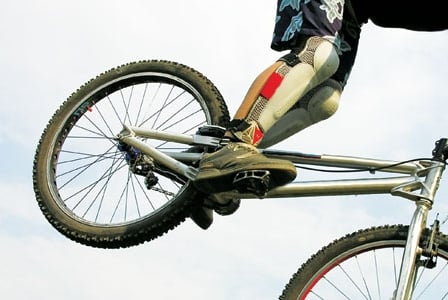
It\’s now been 17 years since I adopted a plant-based diet. The rewards in performance and vitality have been a significant asset to my profession. However, the first few months of eating this way were not pleasant; even the transition over the first couple of years was less than smooth.
It’s now been 17 years since I adopted a plant-based diet. The rewards in performance and vitality have been a significant asset to my profession. However, the first few months of eating this way were not pleasant; even the transition over the first couple of years was less than smooth.
What did I do wrong? I didn’t apply what I already knew about training as an athlete to my approach to changing my diet. An athlete’s training program, built on a systematic approach,
provides an excellent model for adopting a healthy diet: start slow and build up. You begin by running one km, and over time, you build to 10 km. This approach makes sense–so why do many people expect to adapt to a healthier diet almost overnight?
Several athletes I know have, at some point, tried a plant-based diet, though not successfully for more than two weeks at a time. Here’s the problem they encountered: with a new way of eating, the body must adapt, and with adaptation comes stress, even if the change is positive.
Detox Phase
Although it seems counterintuitive, the first few days (or weeks) of an optimal diet may not be a pleasant experience. This early adaptation phase is the body’s time for detoxifying, of eliminating toxins accumulated over years of consuming poor-quality food.
Often, years of less-than-ideal eating practices have rendered the body nutritionally stressed. The poorer the quality of the previous diet, the longer the detoxification process will last. Those converting from a standard North American diet, for example, to an exclusively whole foods, plant-based diet will likely take in excess of four weeks to cleanse the body of toxins. Common detox symptoms include headache, bloating, fatigue, and sleep disturbances.
Timing is Everything
Being aware that detoxification is part of the transition stage is helpful. To reduce the negative impact detox is likely to have on an athlete’s season, he or she is well advised to make major dietary changes only in the off-season. Attempts to adopt a plant-based diet during times of augmented stress are less likely to be successful. Interestingly, this is often the very time that most people attempt the conversion, which accounts for the poor success rate.
It’s common for athletes to try to kick-start below-average performance with radical changes, many of them dietary. When athletes are not performing their best, the reason can usually be traced to symptoms of stress that ironically could be reduced if a properly implemented, whole foods, plant-based diet were adhered to. However, as is true with detoxification, athletes should wait until the off-season to make wholesale dietary alterations.
Of course, this is true for everyone, not just athletes. Don’t try to make significant dietary changes during periods of high stress; be patient and wait until you have the time and energy to invest in yourself. You’re far more likely to succeed with that important transition to a healthier diet.
In my next article, appearing in the June issue of alive magazine, I’ll discuss choosing the right foods for a vegetarian diet.















